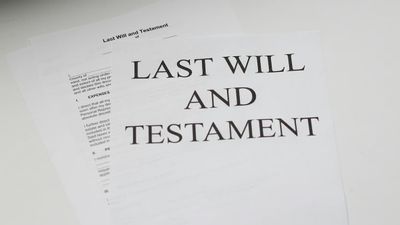DPOA California: Rights and Responsibilities
Durable Power of Attorney California: What You Must Know
Are you prepared for unexpected life events that could leave you unable to manage your affairs? A Durable Power of Attorney (DPOA) in California provides a solution. This article explores the essential aspects of DPOA, including its definition, benefits, and creation process. We'll also address common misconceptions and explain how to review or revoke your DPOA. By understanding these key points, you'll be better equipped to make informed decisions about your future and protect your interests.
Table of Contents
- What Is a DPOA California?
- Key Benefits of Establishing a DPOA California
- Process for Creating a DPOA California
- Differences Between Durable and Non-Durable Powers of Attorney in California
- Common Misconceptions About DPOA California
- Reviewing and Revoking Your DPOA California
- Conclusion
A DPOA in California is a legal document that grants authority to an agent (such as Advocate Fiduciary Services) to make financial decisions on behalf of the principal, even if the principal becomes incapacitated. This powerful tool, recognized by California statute, remains effective until revoked or upon the principal's death.
Unlike a standard power of attorney, a DPOA in California continues to be valid if the principal becomes mentally incompetent. It can cover various financial matters, including managing bank accounts, real estate transactions, and insurance policies. The California Medical Association recommends considering a DPOA as part of comprehensive estate planning.
It's important to note that a DPOA for finances is distinct from an Advance Healthcare Directive, which deals with medical decisions. An Advance Healthcare Directive allows an agent to make healthcare decisions and provide consent for medical treatments when the principal is unable to do so.
Key Benefits of Establishing a DPOA California
Establishing a DPOA in California offers significant benefits for managing financial affairs and healthcare decisions. This legal document provides protection and flexibility, allowing designated agents to handle investments and trusts on behalf of the principal. It also prevents court intervention in personal matters, ensuring smooth management of affairs even during incapacity.
Protection for Financial Affairs
A Durable Power of Attorney in California provides robust protection for financial affairs, allowing the appointed agent to manage various aspects of the principal's finances. This includes handling general financial matters, fulfilling duties related to life insurance policies, executing the principal's will and testament, and even filing tax returns on their behalf. By granting these powers, the DPOA ensures continuity in financial management, safeguarding the principal's assets and interests even if they become incapacitated.
Healthcare Decision-Making Authority
A DPOA can grant healthcare decision-making authority, allowing the appointed agent to make critical medical choices when the principal is unable to do so. This aspect of the power of attorney is particularly valuable for elderly care, enabling caregivers to ensure proper medical treatment and management of healthcare-related property. The document must be notarized by a notary public to be legally binding, providing peace of mind for families dealing with long-term care situations:
- Authorizes medical decisions on behalf of the principal
- Ensures continuity of care for elderly individuals
- Allows management of healthcare-related property
- Requires notarization for legal validity
- Provides security for families in long-term care scenarios
Flexibility in Managing Affairs
A DPOA offers significant flexibility in managing affairs, allowing the appointed agent to adapt to changing circumstances. This legal contract, when properly notarized, empowers the agent to make informed decisions about health care and financial matters, protecting the principal from potential undue influence. The DPOA's versatility ensures that critical information and decisions are handled efficiently, even as the principal's needs evolve over time.
Prevention of Court Intervention
A Durable Power of Attorney in California effectively prevents court intervention in personal matters. By appointing a trusted attorney or trustee, individuals can ensure their financial affairs, including tax matters, are managed without the need for costly and time-consuming court proceedings. This protection extends to healthcare decisions, potentially avoiding situations where a court-appointed guardian becomes necessary, even in cases involving nursing home care.
Process for Creating a DPOA California
Creating a Durable Power of Attorney in California involves several key steps. The process begins with selecting a competent agent and defining their powers and limitations. Legal requirements must be met to ensure validity, including demonstrating the principal's capacity and obtaining proper witnessing. Notarization is necessary for establishing the document's authenticity and protecting assets.
Selecting the Right Agent
Selecting the right agent for a DPOA requires careful consideration. The chosen agent should be trustworthy, competent, and capable of managing financial and healthcare matters, especially if the principal develops dementia or requires conservatorship. It's advisable to consult with a physician to assess the principal's capacity before finalizing the selection.
Defining Powers and Limitations
Defining powers and limitations in a California Durable Power of Attorney requires careful consideration to protect against potential fraud. The document should clearly state any restrictions on the agent's powers, ensuring the fiduciary acts in the principal's best interests. Key elements to address when defining powers and limitations include:
- Scope of financial management authority
- Healthcare decision-making boundaries
- Real estate transaction permissions
- Restrictions on gifting or transferring assets
- Reporting requirements to prevent misuse of power

Legal Requirements for Validity
To ensure legal validity of a Durable Power of Attorney, certain requirements must be met. The document should clearly outline the agent's authority for financial management and decision-making, including provisions for potential conflicts of interest. It must address issues of revocation and specify any limitations on donations or asset transfers. The DPOA should be properly executed, witnessed, and notarized, with provisions for internet-based transactions if applicable. Compliance with these legal requirements helps protect the principal's interests and ensures the DPOA's effectiveness.
Importance of Notarization
Notarization plays a crucial role, ensuring its legal validity and protecting the principal's interests. This process, essential for estate planning, involves a notary public verifying the principal's identity and willingness to sign the document. Proper notarization helps prevent fraud and undue influence, particularly important when dealing with health-related decisions or nursing home matters. It also facilitates the document's acceptance by financial institutions and can streamline probate proceedings if necessary.
| Aspect | Importance |
|---|---|
| Legal Validity | Ensures document's acceptance in legal proceedings |
| Fraud Prevention | Verifies principal's identity and willingness |
| Estate Planning | Facilitates smooth execution of financial decisions |
| Healthcare Decisions | Provides authority for medical choices |
| Probate Proceedings | Can expedite process if necessary |
Differences Between Durable and Non-Durable Powers of Attorney in California
Durable and non-durable powers of attorney in California differ primarily in their effectiveness during incapacity. A durable power of attorney remains valid even if the principal becomes mentally incompetent, while a non-durable power of attorney terminates upon incapacitation.
The scope of authority granted also varies between these two types. Durable powers of attorney often encompass broader financial responsibilities, while non-durable powers may be limited to specific transactions or time periods. This difference impacts the agent's ability to handle financial affairs comprehensively, especially in situations involving extended incapacity.
Execution requirements and termination conditions further distinguish durable and non-durable powers of attorney. Durable powers typically require explicit language stating their continuance during incapacity and terminate only upon revocation or the principal's death. Non-durable powers, however, may end automatically under various circumstances, including:
- The principal's incapacitation
- Completion of specified tasks
- Expiration of a predetermined time frame
- Revocation by the principal
Common Misconceptions About DPOA California
Misconceptions about DPOA often lead to confusion regarding agent authority, limitations, and its impact on estate planning.
Myths Regarding Agent Authority
Common myths surrounding agent authority often lead to misunderstandings about the scope of an agent's powers. Many people mistakenly believe that an agent can act without restrictions or oversight, potentially leading to financial abuse. In reality, agents are bound by fiduciary duties and must act in the principal's best interests. The California Probate Code outlines specific limitations on agent authority, including restrictions on changing beneficiaries or making gifts without explicit permission.
Understanding Limitations
While DPOAs grant significant authority, they do not allow agents to change a principal's will, make decisions after the principal's death, or transfer their powers to another person. Agents must act within the scope defined in the document and cannot exceed their authority, even in financial matters. Recognizing these boundaries helps prevent misuse and ensures the DPOA functions as intended within California's legal framework.
Impact on Estate Planning
A Durable Power of Attorney plays a significant role in California estate planning, complementing other essential documents like wills and trusts. It ensures continuous management of financial affairs during incapacity, preventing potential delays or complications in asset distribution. However, it's important to note that a DPOA does not replace a will or trust, nor does it grant the agent authority to alter these documents. Estate planners should consider a DPOA as part of a comprehensive strategy that addresses both immediate financial management needs and long-term asset distribution goals.
Reviewing and Revoking Your DPOA California
Navigating the complexities of a DPOA requires not only understanding its establishment but also knowing how to review and revoke it when necessary. Life's circumstances can change, prompting the need to reassess the suitability of your chosen agent or the terms of your DPOA.
Signs You May Need to Revoke
Several signs may indicate the need to revoke a Durable Power of Attorney in California. These include observed mismanagement of finances, suspicion of elder abuse, or a significant change in the principal's relationship with the agent. Additionally, if the principal regains capacity or the agent becomes unable to fulfill their duties, revocation may be necessary. Regular review of the DPOA can help identify these issues early, ensuring the document continues to serve its intended purpose.
Steps to Revoke a Durable Power of Attorney
Revoking a DPOA involves specific steps to ensure legal validity. The principal must create a written revocation document, clearly stating their intention to revoke the existing DPOA. This document should be signed, dated, and notarized. The principal must then notify the agent and any relevant third parties, such as banks or healthcare providers, of the revocation. It's advisable to request written confirmation of the revocation from these parties to prevent any unauthorized use of the former DPOA.
Communication With Your Agent
Clear communication with an agent is crucial when reviewing or revoking a Durable Power of Attorney in California. Principals should regularly discuss their expectations, financial status, and any changes in circumstances with their agents. This ongoing dialogue helps prevent misunderstandings and ensures the agent acts in accordance with the principal's wishes. If revocation becomes necessary, the principal must explicitly inform the agent of this decision, preferably in writing, to avoid any potential legal complications.
Conclusion
A Durable Power of Attorney in California is an indispensable component of comprehensive estate planning, offering a framework for managing financial and healthcare decisions during times of incapacity. By understanding the nuances of establishing, reviewing, and revoking a DPOA, individuals can ensure their affairs are managed according to their wishes, safeguarding their interests and providing peace of mind. As life circumstances evolve, staying informed and proactive about your DPOA can prevent potential legal complications and empower you to make timely adjustments. Embrace the opportunity to secure your future by leveraging the full potential of a DPOA, ensuring that your legacy and well-being are protected with confidence and clarity.
Ready to take control of your future and ensure your affairs are in trusted hands? Visit Advocate Fiduciary Services today to explore how our expert team can assist you in establishing a Durable Power of Attorney tailored to your unique needs. Empower yourself with the knowledge and support necessary to protect your interests and secure peace of mind for you and your loved ones. Contact us now to schedule a consultation and take the first step towards a confident and well-planned future.
*Please note that this article is for informational purposes only and does not constitute legal advice. For specific legal guidance, consult with a qualified attorney.




